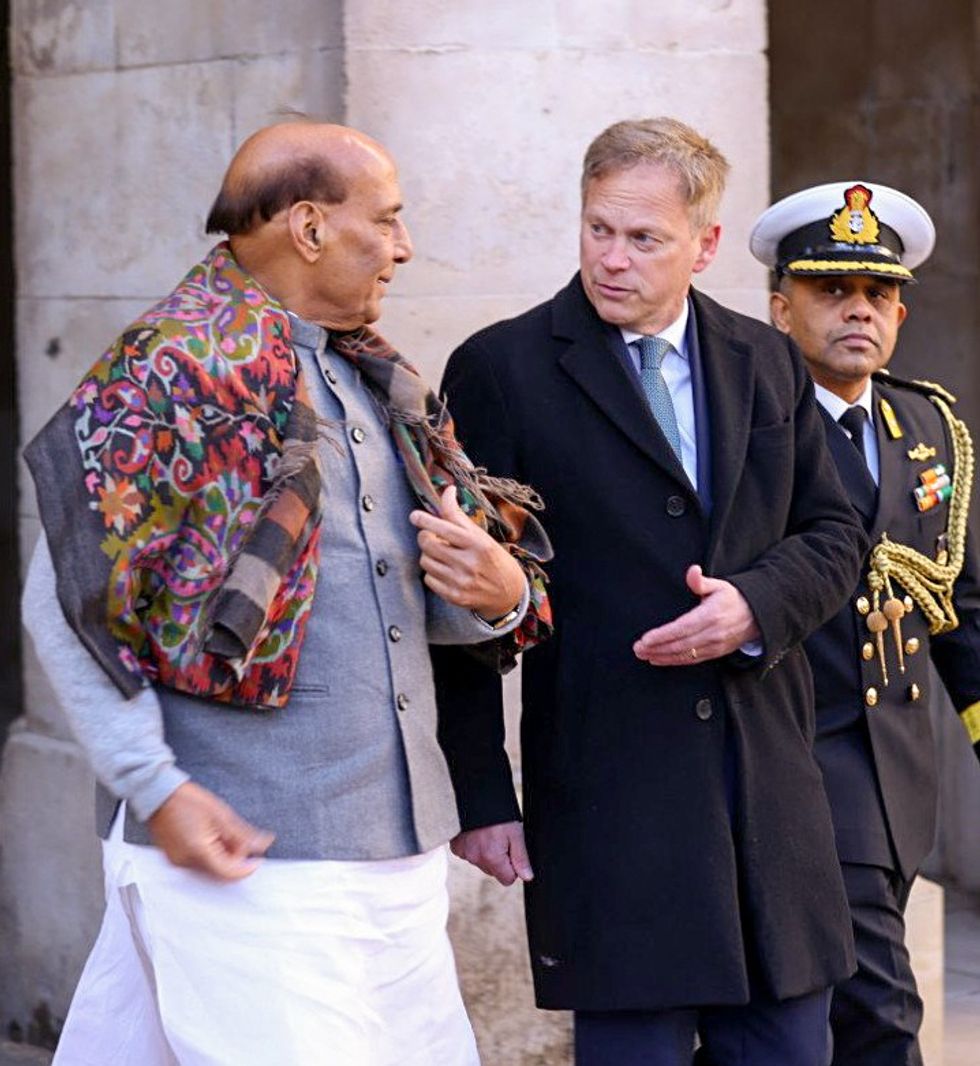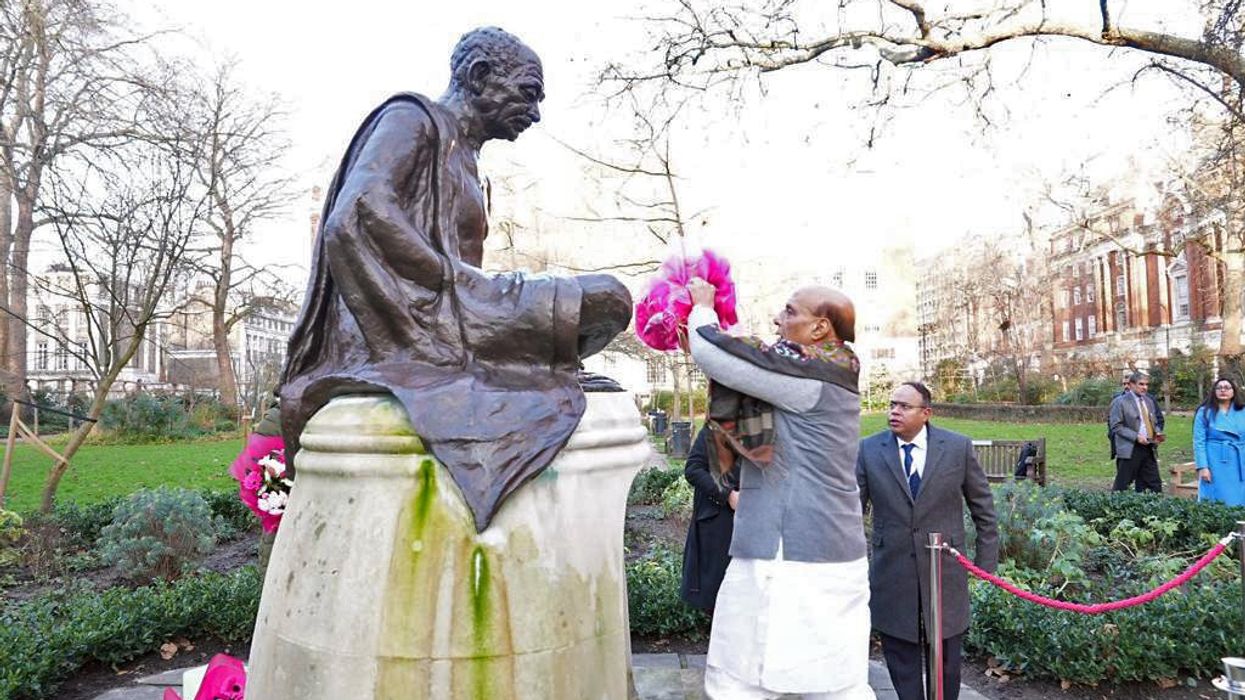INDIA’s defence minister Rajnath Singh arrived in London on Monday (8) for a three-day visit focusing on the India-UK defence partnership as well as security and industrial cooperation.
Singh has been accompanied by a Ministry of Defence delegation comprising officials from the Defence Research and Development Organisation (DRDO), Service Headquarters, Department of Defence and Department of Defence Production.
In addition to holding talks with UK defence secretary Grant Shapps, Singh is also expected to meet prime minister Rishi Sunak and foreign secretary David Cameron.
“During his visit, the Raksha Mantri [defence minister] will hold a bilateral meeting with his UK counterpart secretary of state for defence, Mr Grant Shapps. They are expected to discuss a wide range of defence, security and industrial cooperation issues,” the Ministry of Defence in New Delhi said in a statement last weekend, ahead of the visit.
“Shri Rajnath Singh is also expected to call on UK Prime Minister Mr Rishi Sunak and hold a meeting with Secretary of State for Foreign, Commonwealth & Development Affairs Mr David Cameron. He will also interact with the CEOs and industry leaders of the UK Defence Industry and meet with the Indian community there,” the statement added.

An enhanced India-UK defence partnership dates to the April 2022 India visit by former prime minister Boris Johnson, who announced the creation of an Open General Export Licence (OGEL) for India. This, the UK government said, would “reduce bureaucracy" and help in "slashing delivery times for defence procurement”.
Singh on Tuesday (9) visited Mahatma Gandhi's statue at Tavistock Square in central London.
Accompanied by Indian High Commissioner to the UK, Vikram Doraiswami, and members of his delegation, the Indian minister paid floral tributes at the memorial.
Singh then made his way to Whitehall to inspect a ceremonial guard of honour at the Horse Guards Parade before a bilateral meeting with Shapps.
The previous Indian defence ministerial-level visit to the UK took place 22 years ago.
A defence analyst said the visit “will seek to deepen military cooperation and defence industrial partnerships with the UK”.
Rahul Roy-Chaudhury is a senior fellow for south and central Asian defence, strategy and diplomacy at the London-based think tank International Institute for Strategic Studies (IISS).
The British government could seek to provide an “enabling environment” for its companies in India, he said, by building on previous related meetings.
“Also, with India’s and the UK’s recent focus on the Indo-Pacific, there is a unique opportunity to bolster naval and maritime security cooperation with third countries in the western Indian Ocean region, including with Oman and Kenya, which host UK military and naval presence amidst a greater role and influence in the area by the Indian Navy,” he added.
“The UK is no longer one of India's top five strategic partners. However, the resumption of a strong India-UK defence technological and industrial partnership could take place through the delivery of ongoing projects on aero-engines with Rolls-Royce; naval electric propulsion with GE (Naval) UK and Rolls-Royce; and ground-based air defence system with MBDA (UK)," Roy-Chaudhury said.
"Defence minister Rajnath Singh is likely to visit one of these arms manufacturing sites during his visit to the UK,” he added, though there was no official confirmation about this.

Later on Tuesday, Singh was scheduled to visit the Ambedkar Museum in north London to pay tributes to the rights activist and architect of the Indian constitution, Dr BR Ambedkar, followed by a visit to the BAPS Swaminarayan Temple in north London.
On Wednesday (10), the minister was due to attend a roundtable event with defence industry leaders and later meet representatives of the Indian community at a reception organised by the High Commission of India in London.
As both India and the UK prepare for a general election this year, all aspects of the relationship are in sharp focus, including sped-up negotiations towards a free trade agreement (FTA) expected to significantly enhance the £36-billion bilateral partnership.
The last visit by an Indian defence minister to the UK was by George Fernandes in the Atal Behari Vajpayee-led Bharatiya Janata Party (BJP) government in January 2002.
A previously planned visit by Singh to the UK in June 2022 was called off by India over “protocol reasons”, making this week’s tour a keenly watched one.
(Agencies)





